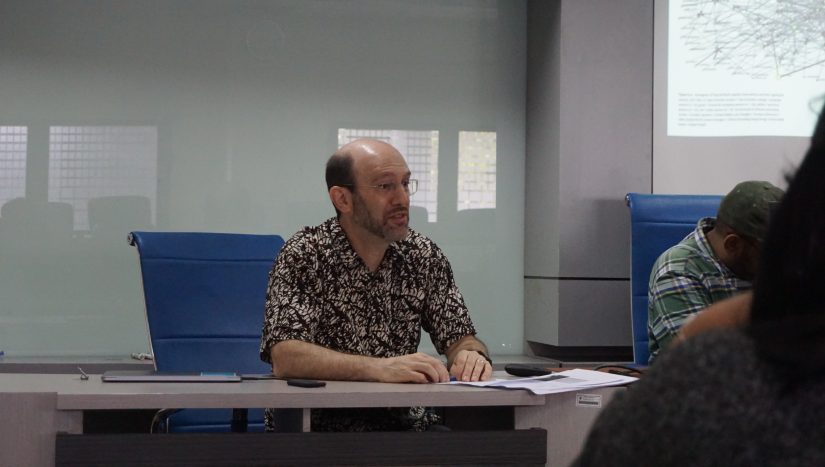
Yogyakarta, January 5th 2023─Responding to the issue of global warming caused by carbon emissions, the government is innovating to increase the use of biofuels in society. The process of extracting resources, processing, and utilizing biofuel certainly involves many parties, including political actors. This is the background for the workshop which was held as part of the “Fisipol UGM X University of Tennessee Lecture Series” on Wednesday (4/1).
The workshop with the theme “Politics of Biofuels” discussed political issues in the use of biofuels as a result analysis of Dr. Paul K. Gellert from the University of Tennessee, United States. “The biofuel policy aims to reduce carbon emissions by 2030, but we cannot deny that biofuel production also causes deforestation. That is why the government has made production rights allocations for several parties,” said Paul. He also explained that the costly production of biofuels certainly takes a large portion of state subsidies. Unfortunately, this subsidy is what the majority of corporations want, so they are competing for the allocation of biofuel production rights.
“The policy to increase biofuels is of course very profitable for large companies because, in addition to receiving subsidies, large companies will gain legitimacy by contributing to the government’s mission of reducing carbon emissions. Even though they also benefit from subsidies,” explained Paul. Referring to the data presented by Paul, the bigger the company, the higher the subsidy it gets. A new problem arises when companies with an exploitation base receive far greater subsidies than companies that offer resource recovery.
The combination of biofuel programs currently occurring is only between the government and production companies which are exploitative in nature. If this continues, palm oil resources—which are mostly used as basic ingredients for biofuels—will be depleted. The recovery of resources also requires a long period of time. This collaboration workshop with the University of Tennessee was held offline at Fisipol and broadcast live via Zoom Meeting.
Concluding his material, Paul hopes that government policies related to biofuels can promote balanced cooperation between resource exploitation and recovery, so that sustainability can be implemented in terms of resources and output from biofuels.
